Contract Period : 01/07/2021 - 01/06/2023
Main Funder : Charitable Trusts and ORC Supporters
ORC Staff Contact : Charlotte Bickler
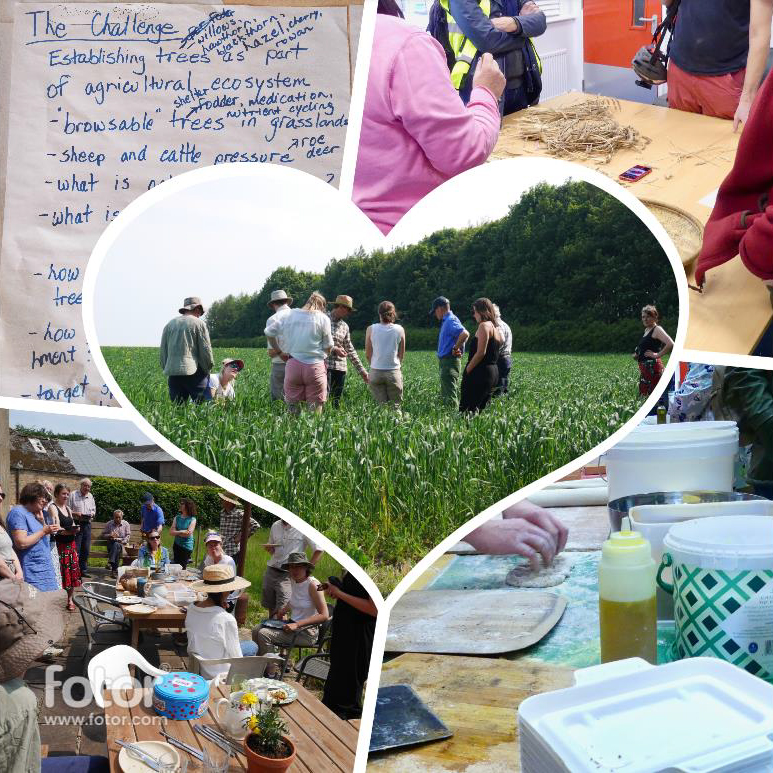
Organic at the Heart (OATH) is ORC’s flagship Healthy and Sustainable Food Systems work programme. It follows a participatory action research (PAR) approach which aims to support individuals and organisations that are fostering the Organic Principles of Health, Ecology, Fairness and Care. Originally funded by a group of Charitable Trusts and ORC Supporters, OATH is delivering co-created solutions to practical challenges by unpicking group member needs and interests. This novel and innovative approach serves as a model for future PAR projects at ORC.
https://fixourfood.org/yorkshire-grain-alliance/
To transform our food system, people who manage the environment and produce food, and people who live in the environment and consume food, cannot be linked by the market alone. We need to connect as part of communities. ORC believes that the Organic Principles of Health, Ecology, Fairness and Care can create a common ground to form and/or strengthen such communities, within and beyond organic certification. OATH aims to support the development of existing, or the creation of new, communities around environmentally, economically, and socially sustainable agriculture. The objectives are to:
Project leader.
We are interested in working with individuals and groups of people that aim to facilitate agroecological food and farming connections within their local food system. Are you:
If you are, let’s work together to identify and amplify success stories whilst unpicking what we need for communities to organise around common values and develop local initiatives – from field to fork – that can de-mystify labels and make the fruits of an organic food and farming system accessible to all. If you are interested in working with us, or supporting this work, then please get in touch.
Exploring collaboration for a resilient local food system in Cornwall
The OATH project has worked closely with regional hubs to accordance with these objectives. This has included:
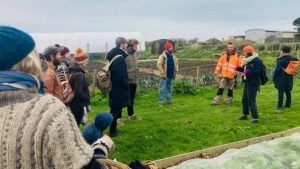
Co-innovation workshop at Newquay Orchard
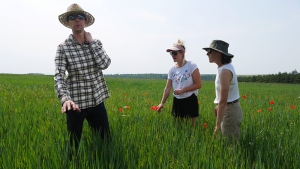
Members of the Yorkshire Grain Alliance visit Mike Stringer’s crops for 2023 harvest.
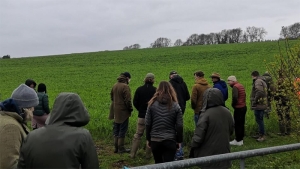
Visiting the crops at Lower Hampen Farm during the Cotswold Grain Network gathering
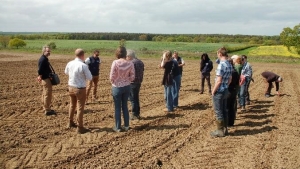
Participants in the north of England agroforestry living lab discussing integration of trees into arable systems at the kick-off event in May 2023
We aimed to develop the Organic at the Heart project as a collaboration between pioneering farmers and food businesses from across England and our research and knowledge exchange team. Together we set out to plan and deliver place-based action research and knowledge exchange to inspire change at a community level.
Thank you to everyone who supported out fundraising appeal for the Organic at the Heart project.
This project was developed following on from a workshop at the Northern Real Farming Conference (2020). You can watch a recording of the session here.